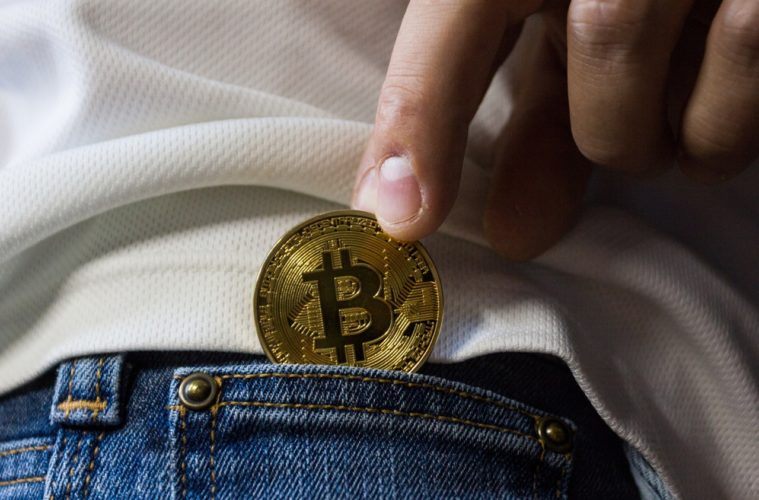It seems that just about everyone is talking about cryptocurrencies at the moment. Also known as Kryptotrading, crypto trading is the process of trading cryptocurrencies with the dominant goal of achieving maximum profit. Bitcoin is the world’s most prominent cryptocurrency. Yet, despite its high-profile status many people know surprisingly little about it. It isn’t fiat currency, so you can’t physically hold Bitcoins in your hand. It’s a digital currency which is only available over the Internet. The ticker for Bitcoin is BTC, and there are now multiple variants of Bitcoin available to casual users, traders, and investors. These include Bitcoin Cash (BCH), Bitcoin Gold (BTG), and at least two dozen others bearing the word Bitcoin in their name. Clearly, the one which everyone is interested in is the original, Bitcoin.
Now that we’ve established what commodity you will be trading, it’s important to learn a little bit more about Bitcoin, what it does, how to buy it and sell it. Bitcoin is the brainchild of an enigmatic individual, or group of individuals, by the name of Satoshi Nakamoto. It was created in response to the failure of the financial systems in the aftermath of the Global Financial Crisis. Through technical wizardry and an ingenious concept which goes hand-in-hand with the creation of the blockchain, Bitcoin was born.

This peer-to-peer value transfer mechanism allows parties to safely, securely, and anonymously exchange value from point A to point B without a middle man involved. Transactions are instantaneous, cost-effective, and secure. This rather rudimentary discussion of Bitcoin sets the stage for traders and investors. Alternative currencies are nothing new, but Bitcoin has revolutionized the global landscape, allowing for rapid transactions processing in e-commerce, banking, and value propositions. Bitcoin is not a tangible commodity. You cannot hold it in your hand and it is not backed by gold reserves or the central bank of any nation. In fact, many countries have yet to regulate cryptocurrency.
That being said, there is a burgeoning market of activity swirling around cryptocurrency trading and investing. Already, major US exchanges allow futures trading on Bitcoin – a speculative activity which is used with other financial assets like stocks, commodities indices, and currencies trading. The CME Group (CME) permits fully regulated Bitcoin futures trading on the financial markets. Of course, Bitcoin futures are designed as a hedge against Bitcoin price movements. If you go long on Bitcoin futures, you are anticipating a rise in the price of Bitcoin. Conversely, if you go short on Bitcoin futures markets you’re anticipating a fall in the price of Bitcoin.
Let’s look at 10 fast facts about Bitcoin that you ought to know for July 2019:
- Bitcoin is priced around $11,300 per unit BTC (£9000)
- Bitcoin pricing is highly volatile with sharp fluctuations
- Bitcoin mining is extremely expensive and time intensive
- Bitcoin currently has a market cap of over $200 billion (£159 billion)
- Bitcoin peaked at around $20,000 per unit in Q4 2017 (£15,907)
- Bitcoin is the dominant cryptocurrency in a market comprised of 2311+ digital currencies. It rules with approximately 62% market share.
- Bitcoin holders need to safeguard their private keys, or risk losing their entire holdings
- Bitcoin numbers are capped at 21 million. The current circulating supply is 17.795 million BTC
- Bitcoin is not accepted in all countries, including Bolivia, Bangladesh, Ecuador, and Iceland. The good news is that the US, Canada and most of Europe accepts Bitcoin transactions
- Bitcoin’s network has more power than 64exaFLOPS – the world’s 500 strongest computers only have computing power of a quarter of an exaflop
How to trade Bitcoins?
It’s important to do your homework whenever you are investing valuable GBP into contrarian financial options. Remember, trading Bitcoin is a risky proposition with strong upside or downside potential. The risk is borne wholly by the trader or investor. To this end, a budget should be allocated towards Bitcoin trading, in much the same way as you would budget for an entertainment expense.
For most people, it is unlikely that trades will encompass individual units of Bitcoin; the more likely proposition is that you will be trading fractions of a Bitcoin given its high cost. In GBP terms, Bitcoin is trading at around £9000 per unit. Once you set up a trading budget, you will be able to determine how much Bitcoin trading volume is permissible. Once you’ve invested you can begin to track the price movements, using this to inform whether you hold or sell into a variety of different FIAT currencies with an exchange app. This could be something like selling into dollars, or something more specific for one region such as Bitcoin to Naira.
It is strongly advised to trade the price movements of Bitcoin. Trading is a two-way street; you can make money when Bitcoin is rising, or when Bitcoin is falling, depending on your method of trade. Conventional buy low, sell high practice is possible with Bitcoin much like it is with other financial assets. The objective is to maximise the positive difference between your selling price and your buying price. Recall Bitcoin futures markets? This allows you to take a position on the future price of Bitcoin.
If the price falls, and you forecast it correctly you will be able to gain a marginal profit on the contract. Other options like margin trading allow you to short sell and generate profits too. It is imperative that you study your options with Bitcoin trading, particularly with futures markets and margin trading. Exchange traded funds (ETFs) are another popular option which can be used to trade Bitcoin on the financial markets through careful analysis of price movements. Believe it or not, exponential growth prospects are possible if the short performance history of Bitcoin extends into the 2020s and beyond.

